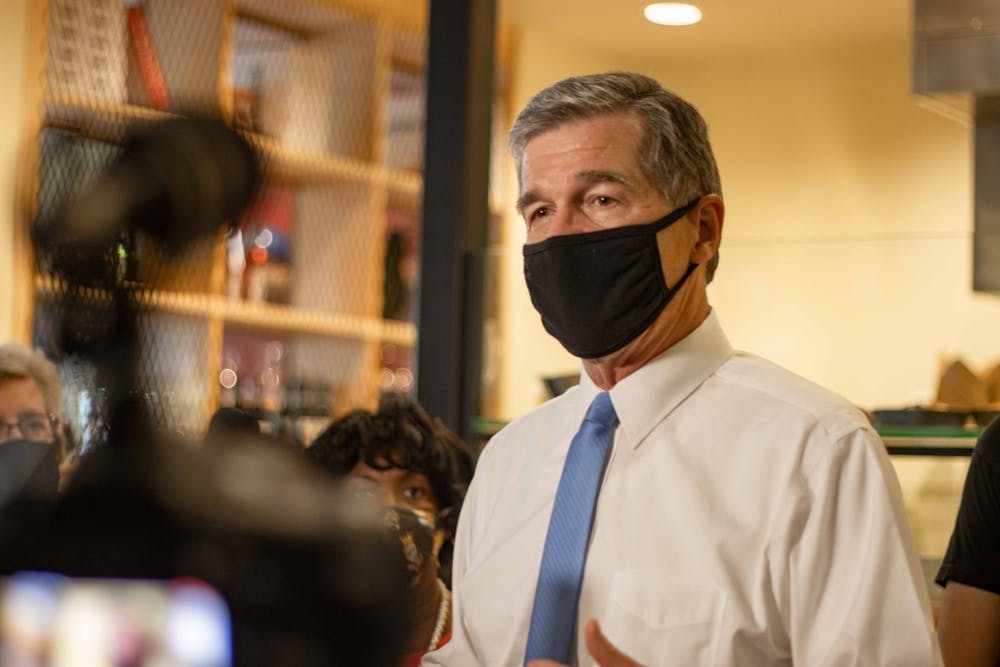Gov. Roy Cooper announced the appointment of several members to the Andrea Harris Equity Task Force, according to an Oct. 28 press release.
The late Andrea Harris was the co-founder of the NC Institute of Minority Economic Development and helped in the fight against poverty in several North Carolina communities.
The task force was reestablished by Executive Order No. 268 in August, with the mission of advising state government offices on ways to promote economic development, equitable practices, health and wellness in disadvantaged communities impacted by COVID-19.
North Carolina has received over $110 billion from the federal government for COVID-19 relief funding as of July 1, according to the NC Pandemic Recovery Office.
Stephanie McGarrah, director of the NC Pandemic Recovery Office and member of the task force, said the office was created to address issues that people are experiencing as a result of the pandemic.
“In general, the effects of the pandemic have been very uneven across the state and have highlighted some inequities across all parts of North Carolina,” McGarrah said.
One of the goals of the new task force is to build off of the recommendations of the original task force, according to the order. The executive order also stated that the task force is intended to be “inclusive of the lived experience of all North Carolinians.”
The original task force had five areas of focus: access to healthcare, economic opportunity and business development, educational opportunity, environmental justice and inclusion and patient engagement.
According to the North Carolina Department of Health and Human Services’ 2018 Health Equity Report, those who live in low-income communities face greater difficulties in accessing healthcare because they have less access to providers.



